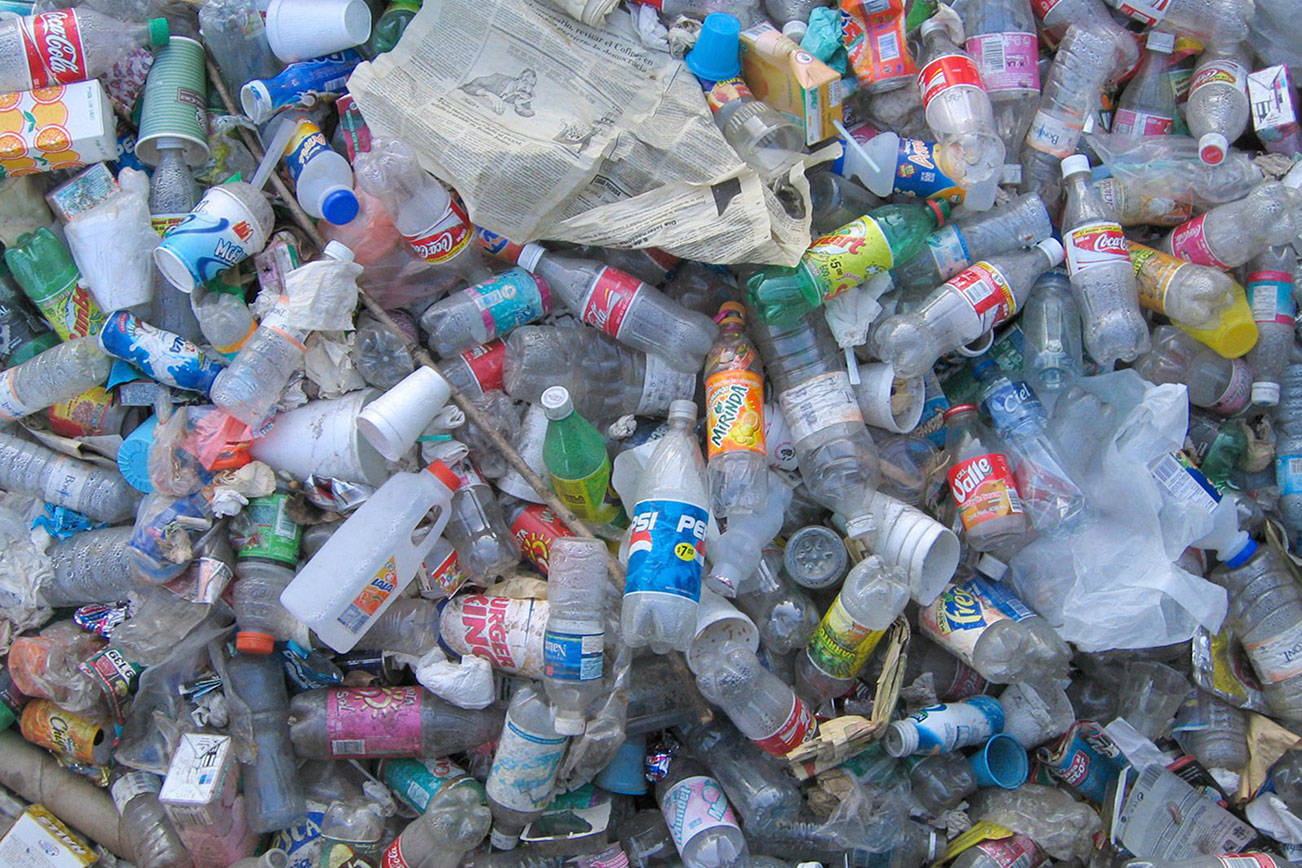For the Reporter
In response to new rules China has put in place that restrict the amounts and types of collected recyclables that can be sent there for processing, King County has established a new task force with cities, garbage haulers, and others to find ways of advancing recycling regionally.
The task force will identify common ground for advancing recycling in light of China’s restrictions on acceptable recyclables, focusing on immediate, mid-term and longer term actions. China’s recent policy is causing major disruption to recycling efforts not just in King County, but across the country.
The task force will have its first meeting in late April, with monthly meetings scheduled over the next few months. Progress reports of the task force work will be provided to the parent advisory committees.
“With representation from local government, recyclable hauling, processing and marketing companies, and others, the task force possesses a deep knowledge base that will help us develop lasting solutions to a challenging issue,” said Pat D. McLaughlin, director of the King County Department of Natural Resource and Parks’ Solid Waste Division. “I am confident that this group’s work will result in improvements to the current recycling system.”
The task force was created through the King County Solid Waste Advisory Committee and the Metropolitan Solid Waste Advisory Committee, which advise the King County Executive and County Council on solid waste issues and decisions affecting county residents and the services they receive.
In addition to King County Solid Waste Division representatives and a King County Solid Waste Advisory Committee member, current task force members include representatives from solid waste haulers that operate in King County – Recology, Republic Services, and Waste Management; representatives from the cities of Renton, Lake Forest Park, Shoreline, Bothell, Kent, Kirkland, Bellevue and Federal Way; and the Washington Utilities and Transportation Division, which regulates the rates, services, and practices of privately owned solid waste collection companies.
Additional cities could join the task force before its first meeting.
At the start of the year, the Chinese government implemented a policy featuring a stringent contamination standard of 0.5 percent for recyclable material imports. A typical permitted recycling facility achieves contamination rates of 3-5 percent.
Recycling contaminants are items that are not accepted for recycling in a particular recycling program or don’t belong with the specific materials being recycled.
Food, liquids, oil and hazardous chemicals that are put into recycling bins can contaminate paper and other materials making whole batches of materials collected in recycling trucks unusable. Contaminants can also be accepted items that are too dirty.
McLaughlin said residents play an essential role in improving the quality of collected recyclables.
“The most important step people can take is to follow proper recycling guidelines to keep the overall contamination rate of collected recyclables as low as possible,” McLaughlin said. “Ensuring recyclables are clean, dry, and empty helps them retain their value.”
American recycling companies, particularly on the Pacific coast, have relied on the Chinese market due to the lower labor costs to sort mixed paper and mixed plastics – things like squeezable plastic bottles, yogurt containers, food storage containers, detergent and ketchup bottles, that King County residents place in their curbside recycling bin and in bins at the County’s recycling and transfer stations.
Earlier this year, leaders with the King County Solid Waste Division’s LinkUp program and Seattle Public Utilities organized a meeting to address the domestic processing of mixed plastics, with more than 60 professionals from the recycling industry coming together to find solutions to the strict new limits.
The group discussed the possibility of building a local secondary sorting facility where materials that are not sorted at primary material recovery facilities would be brought for further separation into market-ready bales before going to end-user manufacturers.
Many recyclable materials, such as aluminum cans, cardboard, plastic water and soda bottles and milk jugs (#1 and #2 bottles) are all in demand by domestic processors as recyclable commodities and are not affected by the China National Sword policies.
Exploring domestic processing and markets for collected recyclables is a key component of King County’s draft Comprehensive Solid Waste Management Plan.


